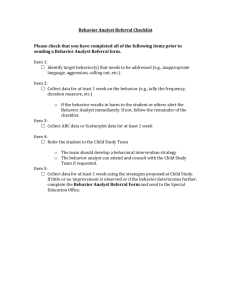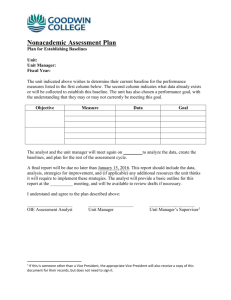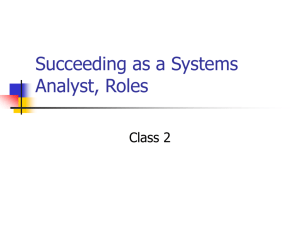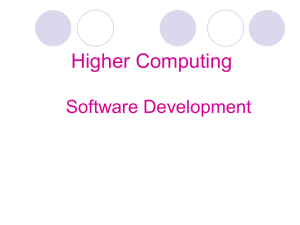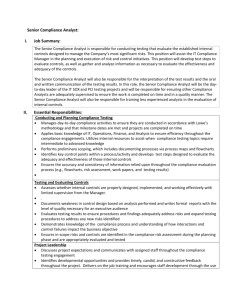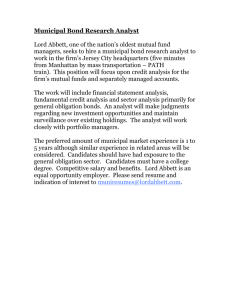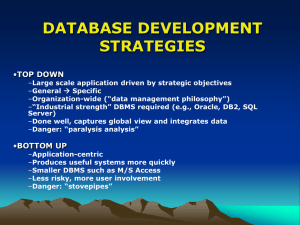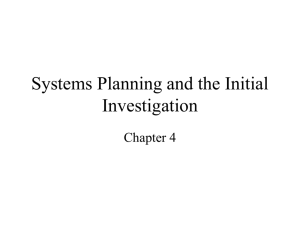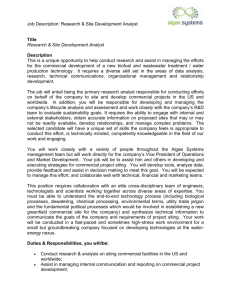Defining a Business Analyst*s Role
advertisement
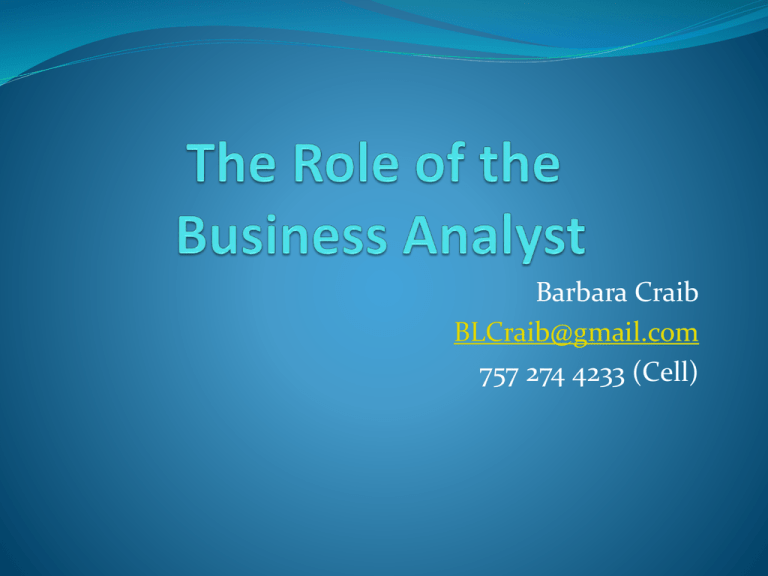
Barbara Craib BLCraib@gmail.com 757 274 4233 (Cell) Why have Business Analysts? Leverage value from investment in technology Further exploit existing technology and information Need for change…. Technology Business Drivers Investment New Technology Expectation Innovation Efficiency Obsolescence Innovation Business Analysts - benefits Know your business Identify opportunities and understand constraints Use coherent tools and techniques – better development Articulate and prioritize requirements Inform evidence based decision making Improve end-to-end processes When to bring in the BA? Strategic planning End-to-end from concept to capability Lifecycle management Concept Create Ops & Maintenance Planning Manage SDLC Implementat ion Projects Requirement Analysis Integration and Test Design & Develop Plan Select Overlap of skills Systems Analyst Project Manager Requirements Manager Risk Manager Benefits Manager Change Manager Business Process Design Management Analyst Communications Business Analyst … advocate Represents the Technology Community in the Business arena Represents the Business Community in the Technology arena Business Analyst - skills Business Understanding Observation, listening and thinking Communication Bigger Picture – beyond organizational boundaries Look ahead – Strategic planning horizon Problem Solving – IDEAS Business Analyst… understands Nature of the problem… impact on the business Underlying issues Relationship between problems Interdependencies People Opportunities Constraints Technology Outcome Information Process Business Analyst… understands Benefits and outcomes $$$$$$$$$$ and ROI – Don’t forget the numbers! Value and Cost Risk vs benefits Contingency Planning Business Continuity Management Efficiency – greater profitability Effectiveness – better product/service Business Analyst – roles Ensure benefits and outcomes become reality Problem solving What-if / scenario planning – Issue Prevention As-is analysis Evidence collection and analysis Understand problems and visualize opportunities IDEAS - solutions To-be development IDEAS – options Business Case development BA Perspective – Requirements Strategic Alignment Business Need based…. Convert from ‘I Want Now’ Evidence based Outcome focused - why? Prioritized Packaged/phased options BA Perspective – Testing Validation – does it meet the needs of the business? As articulated in the Requirements Functional – does it work? Does it interfere with anything else? Can the User achieve……..? BA Perspective– Implementation Holistic perspective People Process People Information Technology Post Implementation ReviewTechnology Outcome Opportunities Lessons Information Process Primary Role of a Business Analyst Leverage value from investment in technology Deliver outcomes and Benefits Barbara Craib BLCraib@gmail.com 757 274 4233 (Cell)

